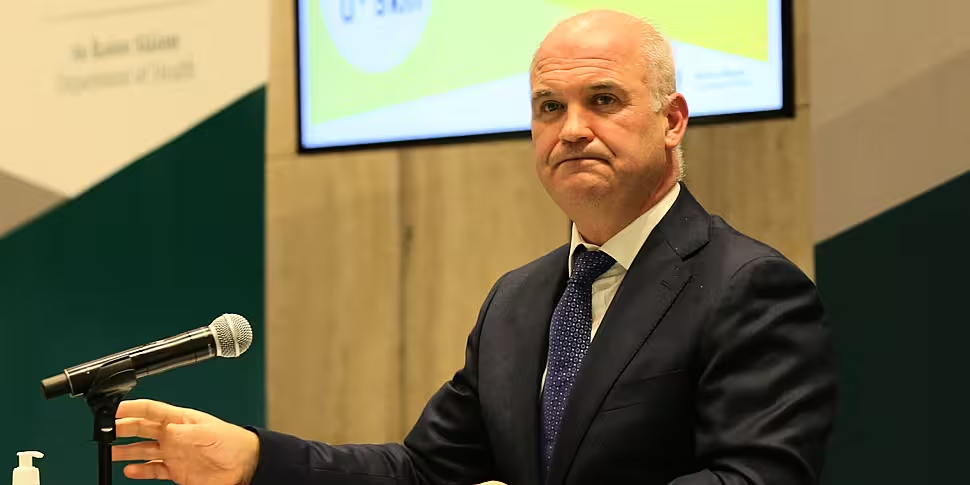There have been eight more deaths related to COVID-19 and 4,929 new cases in Ireland.
Of the cases notified on Monday:
- 2,250 are men/2,641 are women
- 50% are under the age of 45
- The median age is 39
Some 1,513 of the cases are in Dublin, 695 in Cork, 320 in Limerick, 305 in Wexford and 225 in Galway.
The remaining 1,871 cases are spread across all other counties.
As of 2.00pm on Monday, 1,582 COVID-19 patients are hosiptalised - of which 146 are in ICU.
There have been 156 additional hospitalisations in the past 24 hours.
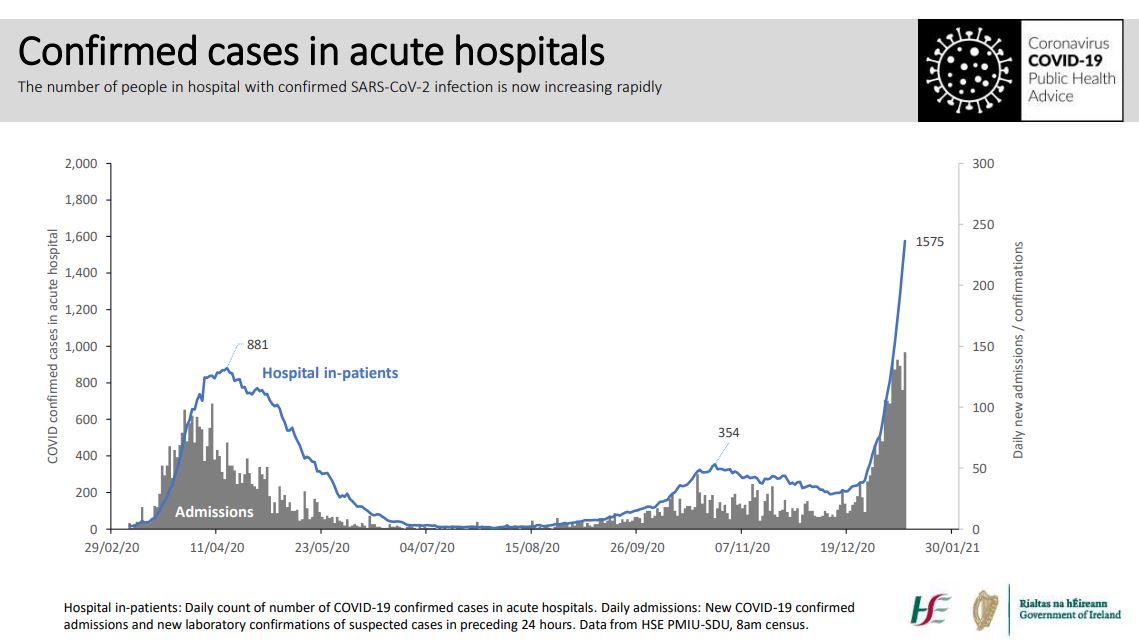 Source: Department of Health
Source: Department of HealthDr Tony Holohan, Chief Medical Officer, said: "While we are seeing the first glimmer of hope in respect of our daily case figures and positivity rates, the situation in hospitals and ICUs around the country continues to worsen day on day.
"We know that hospitalisations occur some weeks after a confirmed case is notified, and mortality after that again.
"That means we are unfortunately set for a period of time where the situation in our hospitals gets worse before it gets better."
"The best way forward now is for all of us to stay at home.
"Staying at home and cutting your contacts right down to only those in your immediate household is the one vital way we will protect our healthcare system as it struggles with the burdens brought on by this surge in COVID-19 infections."
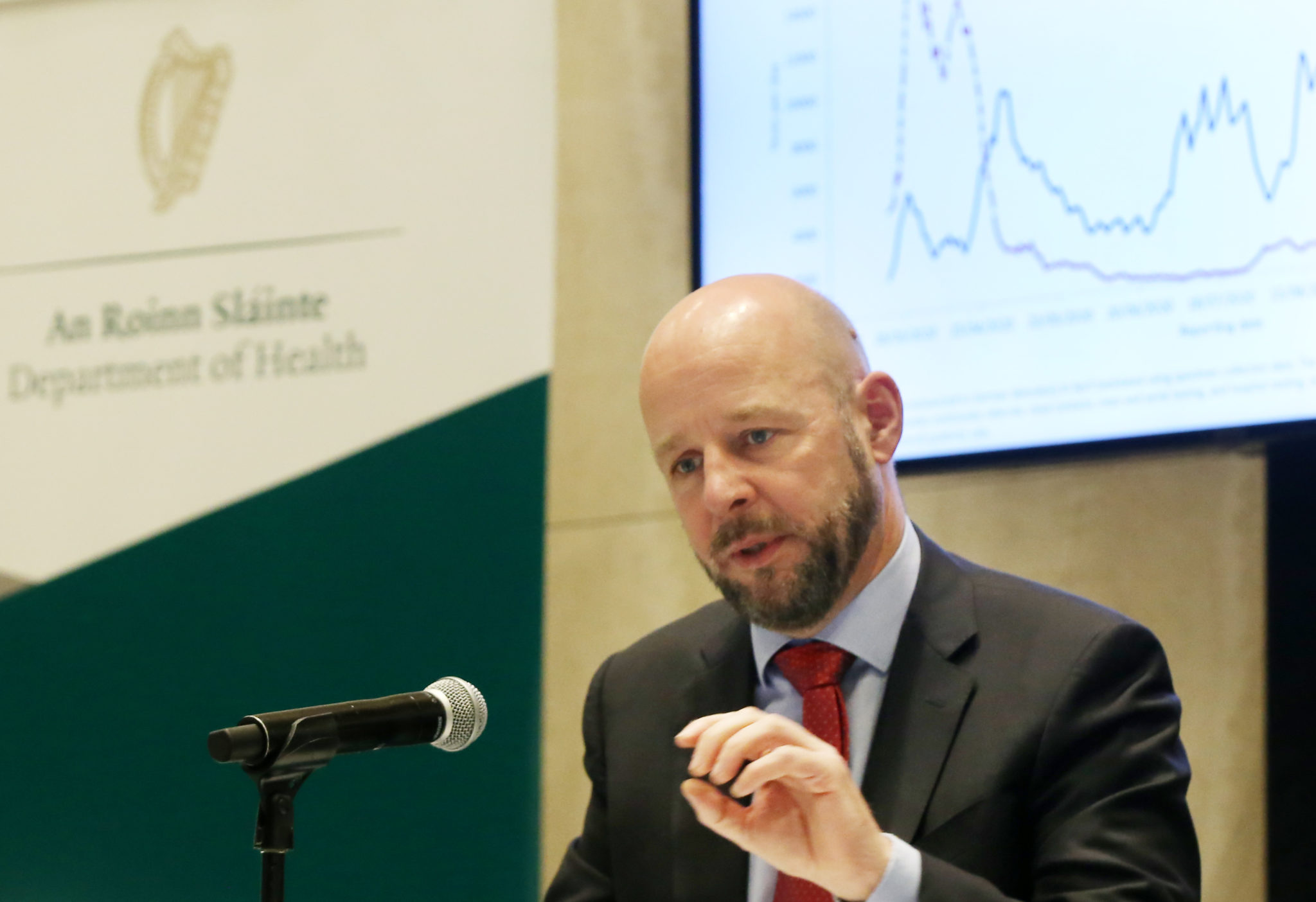 Professor Philip Nolan, Chair of the NPHET Irish Epidemiological Modelling Advisory Group, 30-10-2020. Image: Sam Boal / RollingNews
Professor Philip Nolan, Chair of the NPHET Irish Epidemiological Modelling Advisory Group, 30-10-2020. Image: Sam Boal / RollingNewsProfessor Philip Nolan, Chair of the NPHET Irish Epidemiological Modelling Advisory Group said: "The alarming level of disease is unprecedented in terms of our experience of the levels of COVID-19 in the community.
"We are seeing numbers of cases per day, and numbers in hospital, that we just could not have comprehended prior to Christmas.
"The tools to address this accelerated growth rate are in our hands and we know from experience how we can significantly suppress transmission of the virus.
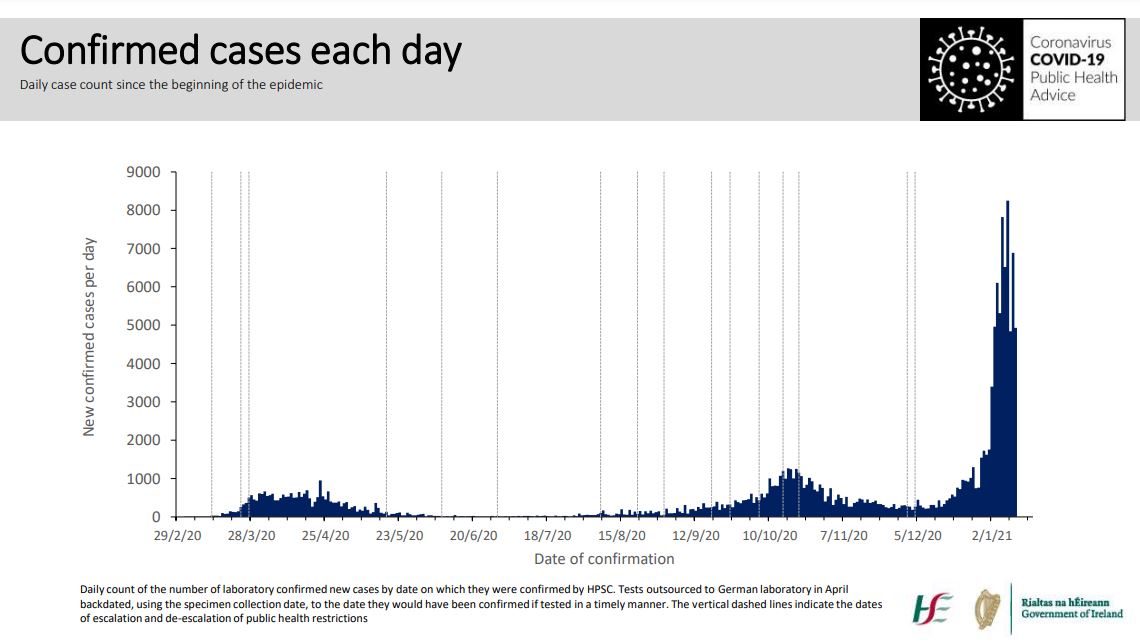 Source: Department of Health
Source: Department of Health"We are beginning to see the first signs of the impact of the latest public health measures, with test positivity falling and case numbers starting to stabilise, but this will only continue if every one of us is committed to following the public health advice to stay at home and work from home as much as possible.
"This is vital in order to make significant headway over the next seven days and to reduce the pressure on our health services and healthcare colleagues".
'UK variant increasing'
While Dr Michael Power, HSE clinical lead for intensive care, said: "Over the past weeks, we have seen a swift and sharp spike in admissions into critical care units across the country.
"As of this morning, we have 146 people sadly in ICU. This is nearing the springtime peak of 155 people in critical care.
"The potential long-term impacts on these patients’ health is stark and significant.
"ICUs are not where we want anyone to be. They are our very last line of defence against COVID-19. The best way we can protect our ICU capacity and those that work in them is to stay at home."
And Dr Cillian De Gascun, director of the National Virus Reference Laboratory, said: "Further testing of COVID-19 samples indicates that the UK variant continues to account for an increasing number of cases - more than 40% of the positive cases tested in the last seven days can be traced back to this variant.
"The greater risk of infection posed by this new variant increases the risk of transmission of the disease in the community.
"Now, more than ever, there is an urgent need for vigilance in our individual response to the disease, which is spread through close proximity to others.
"This virus cannot spread when households do not mix together, when social gatherings do not occur and when people stay at home for all but essential reasons."
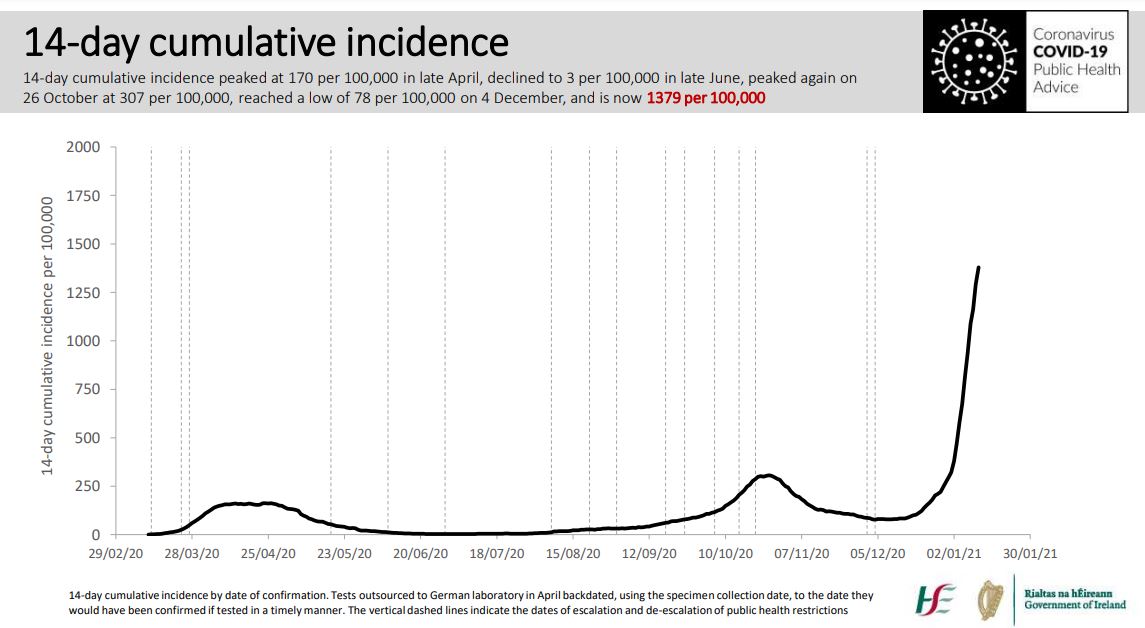 Source: Department of Health
Source: Department of HealthWhile Professor Karina Butler, chair of the National Immunisation Advisory Committee, said there is hope for rapid community vaccination.
"The roll out of the COVID-19 vaccine programme is underway.
"The recent authorisation of the second COVID-19 vaccine for Europe, Moderna, and the latest news on the Astra Zeneca approval process gives us cause for hope for rapid community vaccination against COVID-19 in coming months.
"Every time we wash our hands, wear a face covering and keep a two metre distance from others, we are protecting the most vulnerable in our society and our frontline healthcare workers and giving all of us much needed additional time for more vaccines to be administered".
It comes as figures show Ireland has the highest rate of coronavirus infection in the world over the past seven days.
Data compiled by Johns Hopkins University in the US shows Ireland has reported an average of 132 cases per 100,000 people every day.
On December 10th, Ireland recorded 57.14 cases per million people.
By January 10th, this figure stood at 1,322.92.
However the number of confirmed cases is lower than the number of actual cases due to limited testing.
The next highest country is the Czech Republic (Czechia), which is reporting around 121 cases per capita each day.
The top 10 countries also include Sweden, the United States, Israel and the United Kingdom.


